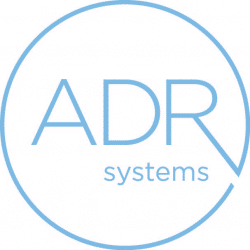Arbitration is often the required means of dispute resolution in construction contracts. Parties to the agreement choose arbitration because they want disputes resolved quickly, efficiently, and in a cost-effective manner. In order to achieve those goals, it is crucial that arbitration clause drafting in the contract be well-executed. ADR Systems’ Model Clause Language is a place to start; however, attorneys should tailor the arbitration clause to address the types of disputes likely to arise between their clients.
In construction projects, parties’ disputes might include non-payment, delay, construction defect, or design defect. In most projects, there are owners, architects, engineers, general contractors, subcontractors, and material suppliers. Disputes can arise between any or all of them, and there are layers of contracts. Counsel must consider how to best protect their clients when disputes arise under different contracts. Transactional attorneys should consult with litigation colleagues to understand the dynamics of construction disputes.
The parties’ desire to avoid litigation will be foiled if the clause is ambiguous. Parties are bound to arbitrate only the issues that they agreed to arbitrate, so clear expression of their intent is essential to a smooth process if disputes arise.
As such, there are several key provisions that should be considered in every agreement:
Arbitration Location, Law, and Administrator
These questions are usually addressed when the parties are negotiating the contract, but they can become bones of contention once a dispute arises. Set out the venue and choice of law and identify the administrator the parties will use in the event of a dispute.
“Step” Clauses
Parties can agree to mediate disputes before submitting to binding arbitration or to litigation. Since the parties control the outcome of mediation, requiring participation in mediation prior to arbitration can help them reach resolution more quickly and save money.
When including a mediation step as a condition precedent to commencing arbitration, include clear timelines so that the arbitration is not unreasonably delayed. One common approach is to set a timeline for demanding, commencing, and completing mediation. For example, the party making a claim must demand mediation within 30 days of giving notice of the claim and a mediation must begin within 60 days of the demand for mediation. If the dispute is not resolved through mediation, either party may then file a demand for arbitration.
Rules of Arbitration
It is not necessary, and not efficient, to conduct arbitrations under court rules of civil procedure. Parties can identify in the arbitration clause any rules they choose. If the rules of the chosen administrator will not meet the needs of the parties, they can choose to use any other rules that will. Almost every alternate dispute provider has rules that address various types and levels of complexity of disputes. ADR Systems’ Commercial Arbitration Rules and Accelerated Commercial Arbitration Rules are two such examples.
Choice of Arbitrator(s)
The first question clause drafters should ask is whether there will be one arbitrator or a panel of arbitrators. Requiring a panel will result in increased cost; however, one of the features of arbitration is that it is almost always a final decision that will not be subject to appeal. Because of this feature, the parties might wish to have three arbitrators deciding the issues.
The qualifications of the arbitrator(s) are also extremely important in construction disputes. While these qualifications should not be so specific as to be unworkable, the parties should consider requiring that the arbitrator(s) have some level of experience in construction law and understanding of the construction process.
Closing Thoughts
Arbitration should be a faster, more cost-effective means to resolving construction claims. Ambiguity in the arbitration clause can defeat that purpose by causing the litigation the parties wanted to avoid. Attorneys who give as much thought and consideration to drafting the clause establishing the agreement to arbitrate as they do to all terms of the agreement will ensure that their clients’ dispute resolution will be efficient, cost-effective, and final. Arbitration clause drafting can make all the difference.
………………
Hon. Lisa R. Curcio, (Ret.) is a senior mediator and arbitrator with almost 30 years of legal and judicial experience. Her ability to settle cases involving all aspects of construction projects and disputes arising from construction contracts — including claims based on mechanics lien — is augmented by her knowledge of real estate and banking, which she cultivated prior to becoming a practicing attorney. Her expertise in these matters enables her to carefully manage complicated multi-party cases and understand the nuances involved in litigation and alternative dispute resolution.
Request Judge Curcio’s Availability
ADR Systems, It’s Settled.®





